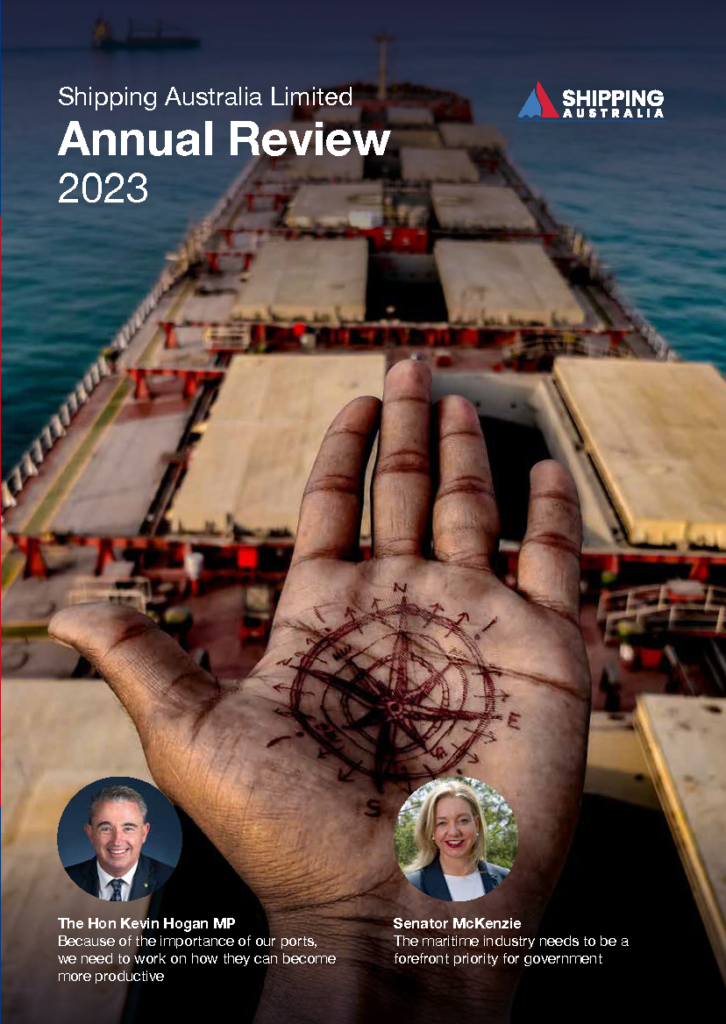One set of global rules is necessary for the shipping industry to decarbonize, the United Nations has declared, in this year’s Review of Maritime Transport.
“Given the globalized nature of international shipping, fragmented solutions that favour exemptions and differentiated rules can lead to sub-optimal outcomes. A universal regulatory framework for decarbonization that applies to all ships irrespective of their flags, country of ownership and region of activity is critical to ensure a level-playing field and avoid a two-speed decarbonization shipping landscape,” the UN’s review declared.
Published by the UN Conference on Trade and Development, a permanent intergovernmental body and part of the UN Secretariat, the Review takes a swipe at the European Union.
“One study has suggested that in the case of the European Union ETS [emissions trading scheme], transshipment hubs could relocate from the European Union to non-European Union ports to avoid paying into ETS”.
The EU ETS is a cap-and-trade scheme. The EU imposes a hard limit (i.e. a ‘cap’) on how much carbon companies can emit over a given time and that limit reduces over time. A series of “emissions allowances” are created. A small amount of allowances are given away freely to companies (although shipping will not be given free allowances), the rest are sold by the authorities in an auction. Companies can also buy allowances from each other. Allowances then have to be surrendered to the authorities and companies that do not have enough allowances to cover their emissions will face heavy fines. Ships could even be barred from EU waters.
Over time, the companies that emit the greatest amounts of greenhouse gases will experience rising costs and the companies that are greenest will experience lower costs. The system thereby puts pressure on industries to reduce emissions.
From January next year, all ships above 5,000 gross tons entering EU ports will be covered by the EU ETS. Smaller vessels will be included in later years and, initially, carbon dioxide emissions will be covered and that will later be expanded to cover other gasses such as nitrous oxide. The system will cover 50% of emissions from voyages starting / ending outside the EU and 100% of emissions between two EU ports.
UNCTAD have noted that a regional system, as opposed to a global system creates opportunities for avoidance tactics. For instance, ships could alter their route and / or refuel outside the jurisdiction. Whether any particular measure will work financially will depend on the market price of the carbon allowance, fuel costs, charter rates per day, stevedoring costs, port fees, pilotage fees, towage fees, how much business can be picked up at that non-EU port and so on.
The EU ETS works on a port-to-port basis. So, if a ship has an origin in the EU, say, Rotterdam / Shanghai (or vice-versa) then 50% of the emissions on that voyage will be subject to the scheme. Ships could re-route, to say, Gibraltar (UK – but Spain (EU) adjacent) or Tangiers (Morocco), before continuing to Rotterdam and the 50% of emissions rule will apply only from that last port of call. If ships happened to be on such a route anyway and were originally scheduled to call at Algeciras (EU, Spain) first then Tangiers (non-EU) (the two ports are about 32km from each other) then it would make eminent sense to simply reverse the order of port calls to Tangiers first then Algeciras.
Alternatively, it could make sense to call at a non-EU hub-port and feeder from there, depending on how well-suited the feeder vessels are to a given trade. Similarly, a long-distance journey from one end of the EU to a port at the other end of the EU could take advantage of calling at a non-EU port as including a non-EU stop takes the covered emissions percentage down from 100% to 50%.
It is pretty easy to imagine that, depending on the first EU port of call, a variety of non-EU ports / countries could benefit, for example, in the UK – Southampton, Felixstowe or London Gateway (especially for the trans-Atlantic trades), ports and countries along the north African coast for the Asia-Europe / South Europe trades e.g, Port Said (Egypt) before calling at, say Marsaxxlokk (Malta), or the north west African ports (e.g. Tangiers) before Spain and so on.
A study has been carried out by economic consultants CE Delft into the issue. See Maritime Shipping and EU ETS. An assessment of the possibilities to evade ETS costs. That said, there is a counter view, promoted by clean transport campaign group, Transport & Environment, which argues that few shipping companies would benefit from extra port calls at a given carbon price.
Dr Roar Adland, FCIS, and Global Head of Research at international shipbrokers Simpson Spence Young provided some scathing analysis.
“[T]he introduction of the scheme will almost certainly increase overall emissions. Firstly, because you are making (relatively “green”) European industry less competitive by increasing the cost of its inputs and outputs, thereby moving marginal production to areas of the world with less strict regulations on emissions or to areas just outside EU borders which are not subject to this transportation tax, thus, increasing sailing distances. Secondly, because the loopholes that might be used – e.g. transshipments or ship-to-ship transfers – means you will use smaller tonnage for the final leg into the EU, which by definition will increase emissions per tonne mile,” he wrote.
However, the UN is certainly of the view that there is a “high risk of carbon leakage” and that not only could ships seek to avoid the EU ETS but this tactic could cause the re-location of trans-shipment hubs from the EU to non-EU ports.
The UN also points out that fragmentation of the global system increases uncertainty, undermines the level playing field and distorts markets while jeopardizing the achievement of climate targets due to, among other factors, lack of incentives, carbon leakages, compliance evasion, etc.
“For shipping to succeed in decarbonizing and help prevent dangerous levels of global warming, the sector needs to act swiftly. The sector must also reach consensus regarding the regulatory framework and measures of the future as soon as possible. The shipping industry requires a clear, uniform, and predictable operating landscape with minimum regulatory uncertainty. Delaying the adoption of IMO mid-term or long-term measures aimed at managing shipping GHG emissions will jeopardize decarbonization targets. It could also result in different tiers of overlapping regulations at multinational, national and regional levels and regional tiers of compliance such as specific green corridors or exemptions. Additionally, it may pave the way to regional pockets of unsustainable and substandard shipping,” the UN report states.
The UN report also adds that IMO climate change measures are expected to generate funds, some of which could be used to help develop countries by boosting the resilience of their infrastructure and to help them seize business opportunities in decarbonisation, shipping and the energy transition; to help mitigate trade or transition costs to help bring about boosts to port and hinterland connections.
The consensus opinion of the global shipping industry, which Shipping Australia whole-heartedly endorses, is that there should not be any unilateral, or regional, regulation of international shipping that does, or could be seen to, undermine the authority of the International Maritime Organization. There is, or should be one set of global shipping rules that are created by one global regulator. That set of rules is the IMO rule-set. That global regulator is the IMO.
Policy makers in Australia and throughout the Oceania region are strongly urged to be aligned with the IMO rules and not to develop local or regional rules.



